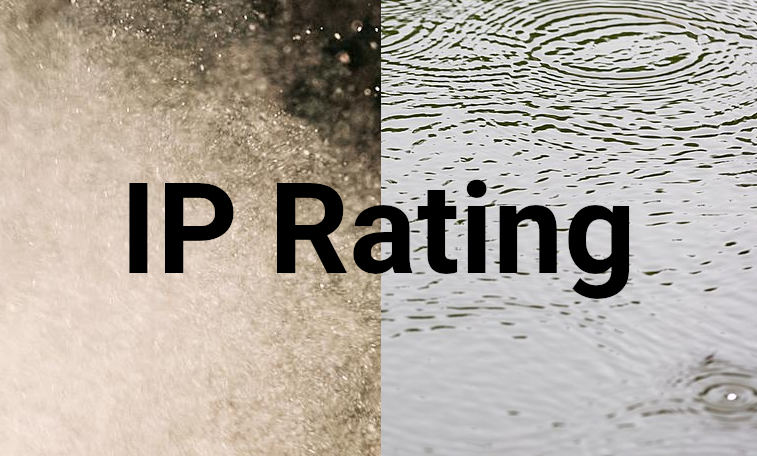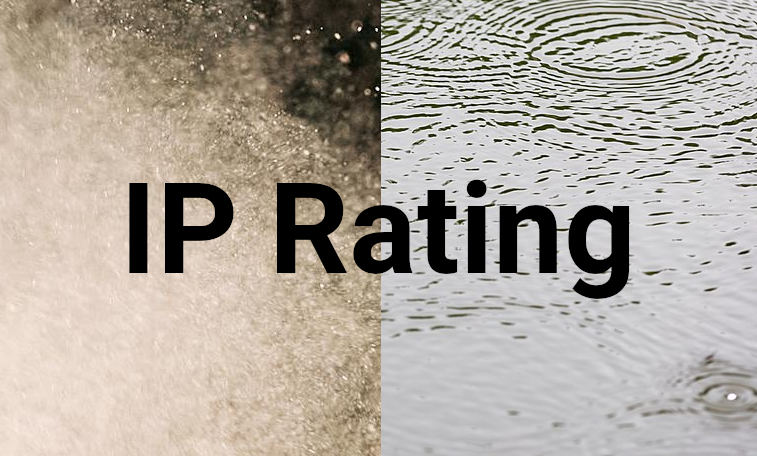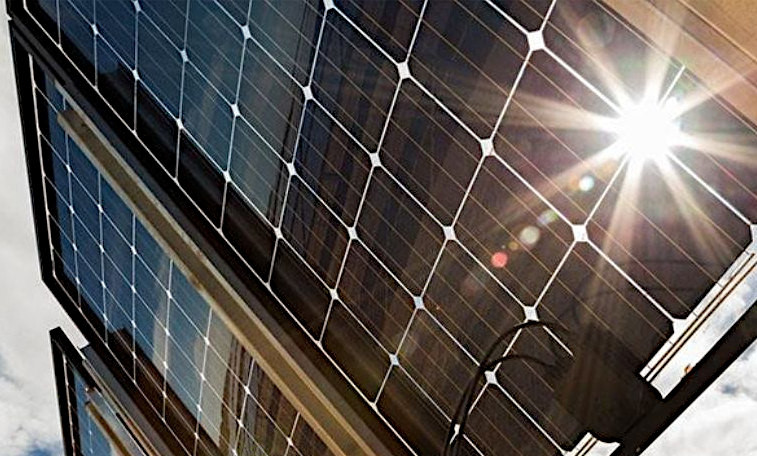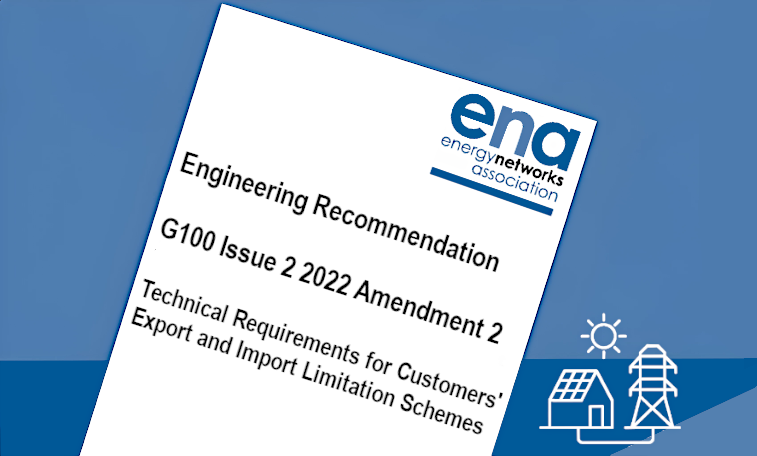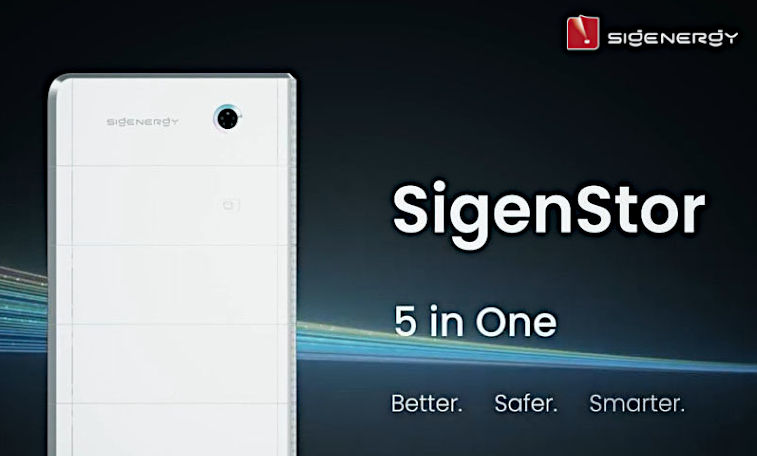IP Ratings Explained. A guide for Solar Batteries
IP Ratings Explained. A guide for Solar Batteries
IP stands for Ingress Protection and describes to which extent dust and humidity can reach the inside of an electrical device.
The rating consists of two numbers, the first number specifies the protection against solid foreign objects, touching, dirt, and dust that could damage the device. The second one relates to water protection - sprays, rain, submersion etc. The higher each number is, the higher the protection.
IP ratings are standards defined by the International Electrotechnical Commission (IEC 60529), EN 60529 (British Standard BS EN 60529:1992).
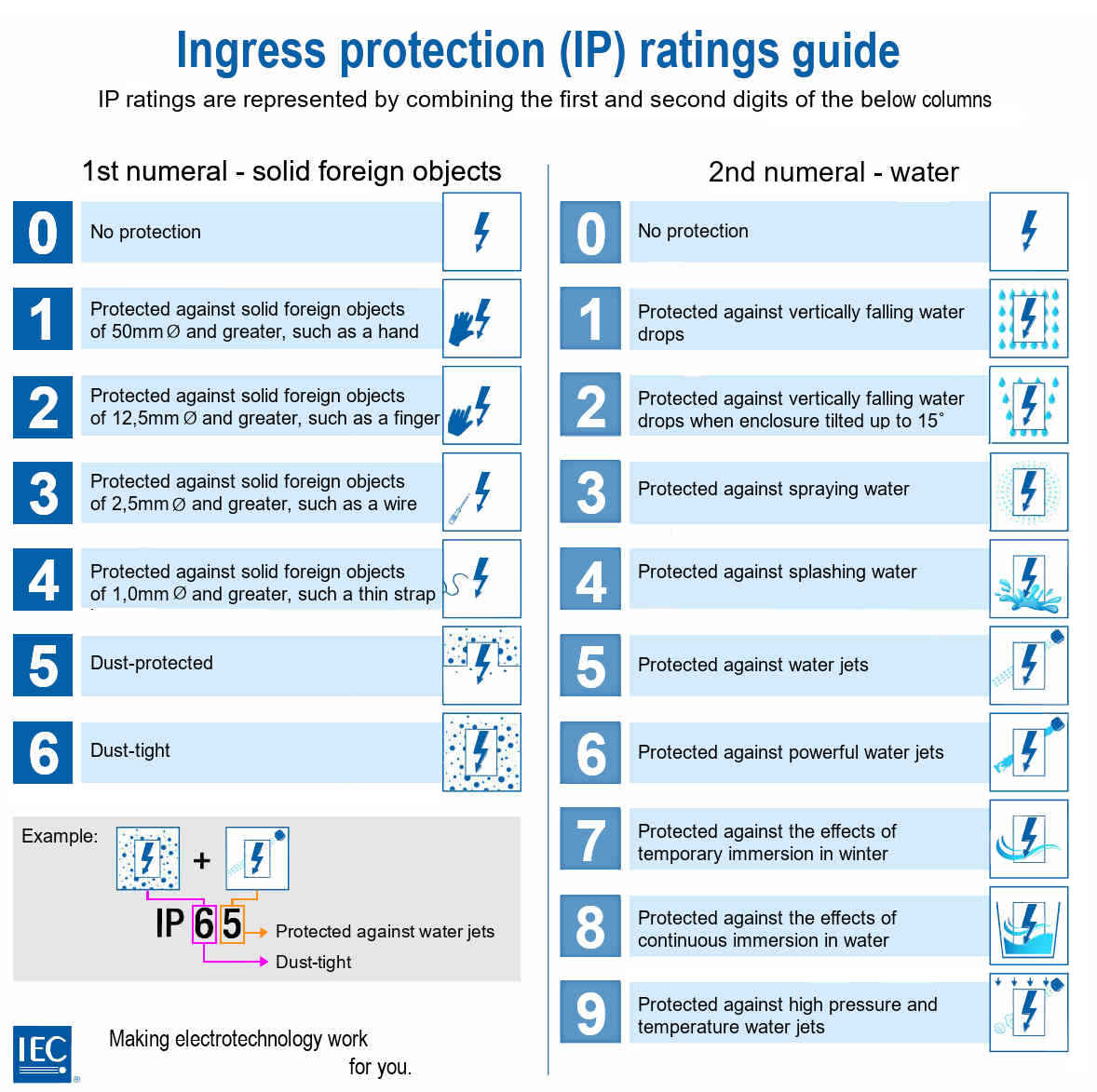

IP Ratings and Solar Equipment
Understanding the IP ratings is crucial for safeguarding the installation of solar equipment against the elements.
The ideal installation should consider various factors, including weather and location. So the use of appropriate IP ratings could ensure the equipment’s longevity and performance.
IP Ratings and Solar Battery Installation
One of the most important considerations while installing either a sole battery or a solar battery system is location.
Batteries can be placed indoors or outdoors but the decision of where to install them should take into account the Manufacturers’ recommendations, as to comply with safety standards and to maximise their capabilities.
Installing solar batteries indoors is a preferred choice in residential settings because it provides easy access in terms of maintenance and protection against high temperatures. But there are reasons why they are installed outdoors, such as lack of space, lack of suitable ventilation, and restrictions regarding safety. Or simply by choice.
For an outdoor installation, the battery should be able to withstand the weather, hence IP ratings should be higher.
IP ratings of 65 or over should be fine for an outdoor battery installation, so they are reasonably dust and waterproof. Any battery with a lower rating would need to have a protective cover to ensure it’s safety from elements.
Popular protection levels for Lithium-ion batteries
IP20, IP22: suitable for indoor use only or an indoor cabinet/stacking installation.
IP65: for batteries that require higher dust protection and can prevent the impact of water jets.
IP66, IP67, IP68: For dustproof and waterproof batteries. These IP ratings are also suitable for indoor and outdoor installations, although these higher degrees of protection are more suitable for outdoor use.
Finally, it is important to note that IP standards serve as benchmarks. Higher IP ratings do not necessarily mean better protection. For example, a product with an IP rating of 68 which provides dustproof and waterproof protection might not be suitable for areas with high humidity levels because it may not protect against condensation (Assembly Magazine, May 2023)

